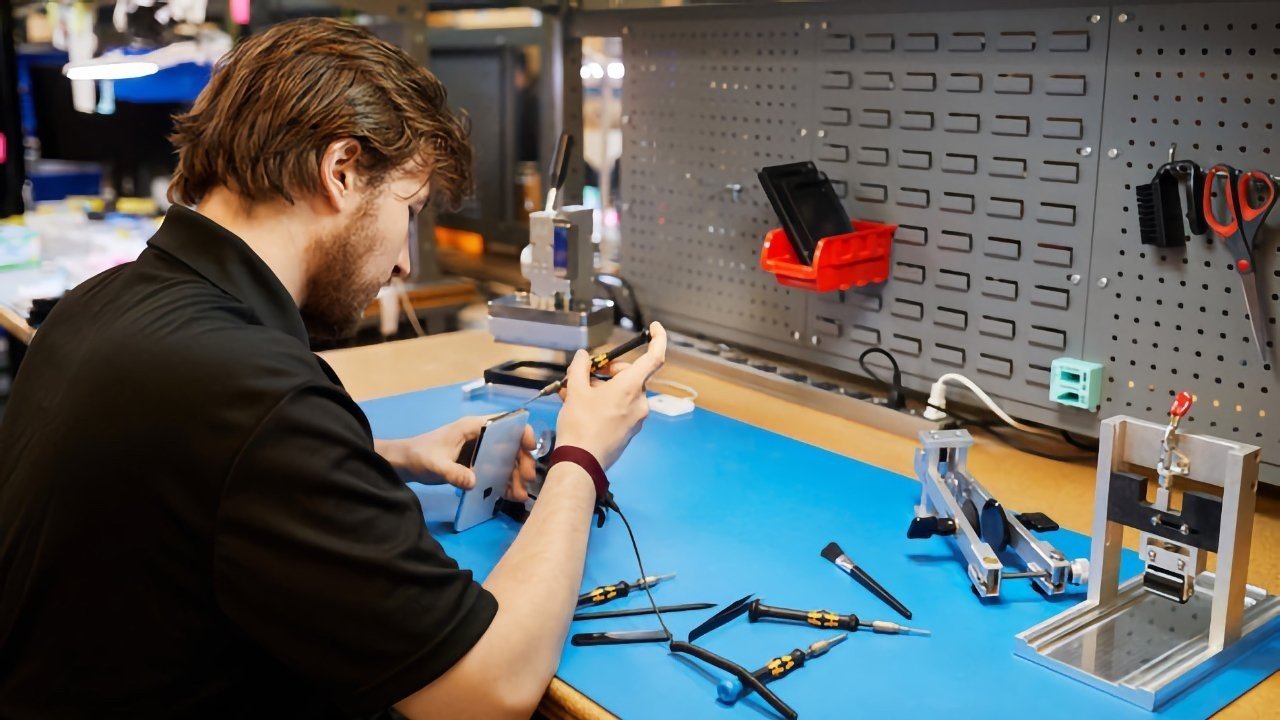Apple Repair Program

AppleInsider may earn an affiliate commission on purchases made through links on our site.
New York's toothless right to repair bill not only includes concessions to the demands of Big Tech firms, but text written by them.
In December 2022, New York became the first US state to pass a Right to Repair bill, but one which AppleInsider described as "functionally toothless." Now draft documents and emails between lobbyists, government and repair advocacy groups show much the Digital Fair Repair Act was directly changed by Big Tech.
According to Grist, a nonprofit media organization, many of those changes are identical to those proposed by TechNet. This trade organization represents Apple, Google, Samsung, HP and more.
"We had every environmental group walking supporting this bill," Patricia Fahy, bill sponsor, told Grist as she confirmed the authenticity of the documents. "What hurt this bill is Big Tech was opposed to it."
New: Gov. Hochul has signed the "right to repair" law — with the Legislature agreeing to a number of changes, as outlined in her approval message. pic.twitter.com/GUBExlj5BD
— Jon Campbell (@JonCampbellNY) December 29, 2022
In June 2021, a version of the act was passed by the New York State Senate with a smaller number of certain changes. Specifically, the state agreed to allow exclusions for various items such as police radios and farm equipment.
"We made a lot of changes to get it over the finish line in the first day or two of June," said Fahy. She says she was willing to agree to those because it meant the bill would focus on small electronics, and so give consumers "the biggest bang for their buck."
Once it was passed, however, Senator Neil Breslin (Democrat) says the tech industry was surprised. "There's a number of people who were advocating on the parts of the [manufacturers] who really, in private chats, were not expecting it would be passed," he said.
From that point, TechNet and others including lobbyists representing Apple, Google, and Microsoft, held frequent meetings with Governor Kathy Hochul. Those specifically representing Apple, IBM, and TechNet specifically asked the governor to veto the bill entirely.
Microsoft reportedly softened its resistance to the bill, though, and while it requested edits, did not ask for a veto. "[Microsoft] constantly tried to reach out [to us]," said Fahy.
Failing to get a veto, TechNet and others asked for the law to apply only to future products, not ones already being manufactured. It asked, too, that devices sold on government contracts, or in business-to-business deals, be excluded.
It also asked for printed circuit boards be excluded. TechNet pressed for the bill to allow manufacturers to sell multiple components pre-assembled as one unit, where selling an individual part could be a "safety risk."
A draft following TechNet's requests was shared with the Federal Trade Commission (FTC) by advocacy group Repair.org. Subsequent documents seen by Grist show that the FTC was highly critical and noted that the new bill "could easily be abused by a manufacturer."
"These particular TechNet edits all have a common theme," FTC chief counsel Dan Salsburg wrote in an email to Fahy's office, "ensuring that manufacturers retain control over the market for the repair of their products."
Reportedly, however, TechNet got everything it asked for, and the final bill even contains text as written by the group.
Security concerns
TechNet has responded to Grist, saying that the original version of the bill as published in June 2021, "presented unacceptable risks to consumer data privacy and safety." TechNet executive director for the Northeast, Chris Gilrein also said that his organization "addressed the most egregious security issues."
Despite the watering down of the bill, Repair.org executive director Gay Gordon-Byrne said getting any right to repair bill passed is "huge."
"[It] could have been huger," he added.
Fahy points out that the New York Department of State still has to craft regulations what will dictate how this law is passed, and she hopes it will clarify some of these weakened aspects. She also says that even as it is now, the act will help New York consumers save money, and keep old devices from going in to landfills.
Plus Fahy believes that the passage of this bill will help other states to get their own versions passed in to law — and that this could ultimately lead to national agreement between manufacturers and repair firms.
Apple, IBM, and others declined to comment.
There are already steps underway to create such a national agreement. In 2021, President Biden asked the FTC to draft new right to repair regulations.